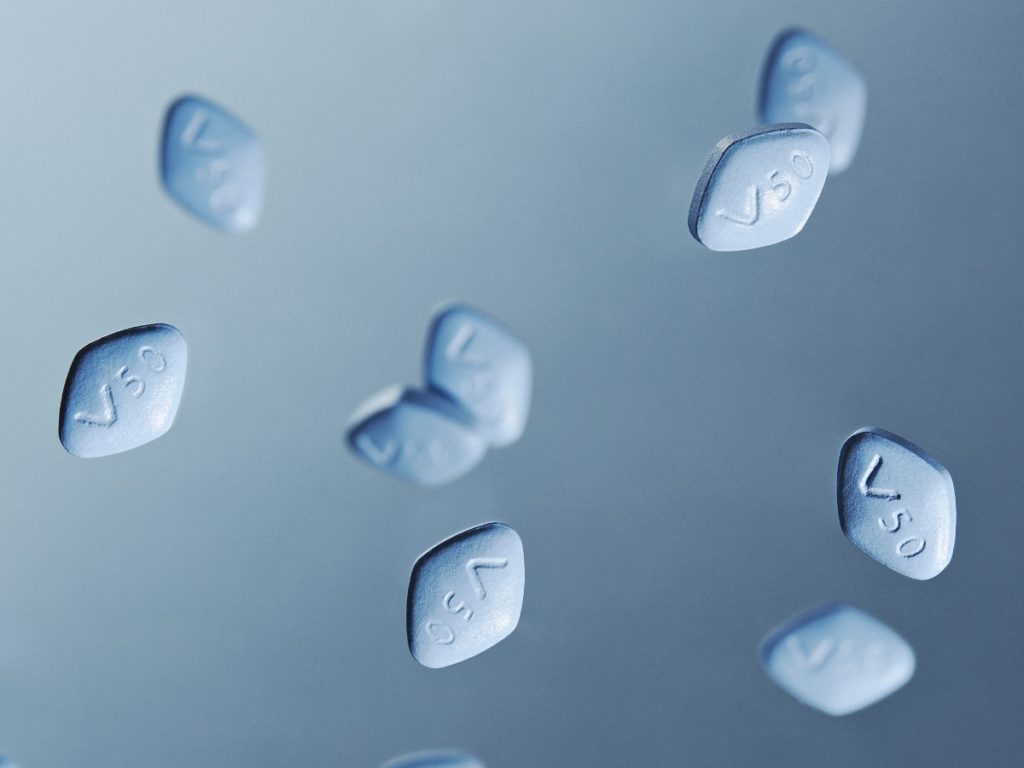Having trouble with erections? Erectile dysfunction can happen for multiple reasons, from performance anxiety to underlying health conditions. To know how to get stronger erections, you need to understand how erections work, what can impact them and treatment options you can turn to, if needed. Here’s our MedExpress expert guide.
How do erections work?
Getting an erection is a complex process involving your nerve, circulatory, and hormone systems. Your brain produces signals when you’re sexually stimulated. These signals trigger the release of chemicals, such as nitric oxide, which relax the smooth muscles around your arteries. This increases blood flow into the tissues of your penis, causing it to harden and become erect.
What is the refractory period?
Many men experience a refractory period, where it’s difficult to get an erection or have another orgasm after ejaculation. This period varies in length based on your age and general health. For some, it’s a few minutes to an hour. For others, it can take up to 24 hours to be ready for another sexual encounter. It’s thought to be controlled by changes in hormone levels and nerve signals. Your refractory period allows your body time to recover before more sexual activity. On average,
What is erectile dysfunction?
Erectile dysfunction (ED) is the consistent inability to achieve or maintain an erection suitable for penetrative sex. It can have underlying causes, including vascular disease, neurological disorders, hormonal imbalances, psychological factors. Some prescription medications may also cause erection difficulties. ED can significantly impact your quality of life and interpersonal relationships, and it may be a sign of underlying health issues.
How to get harder erections
Healthy bodies create healthy erections, so you can often improve your sexual performance just by making small lifestyle changes.
Lower stress levels
Whether you have performance anxiety, or you’re distracted by other worries in your life, research shows that stress can have a negative impact on your sexual performance. Meditation, mindfulness and spending quality time with your partner can help you reduce stress. If your mental health is affecting your sex life, speak to your GP for advice about counselling.
Diet and exercise
Eating a balanced diet and doing regular exercise can help you maintain a healthy blood pressure and reduce your risk of heart disease. Good cardiovascular health is essential for good penile blood flow and a stronger erection.
Drink less alcohol
If you’re a heavy drinker, you may have erection trouble, regardless of whether you have ED. That’s because alcohol disrupts the neurotransmitters that increase blood flow to your penis when you’re aroused. One beer or a glass of wine won’t make much difference, but cutting down on your alcohol intake may help improve your sexual performance.
Quit smoking
Good blood flow is essential for stronger erections. Smoking can cause your blood vessels to narrow or build up plaque (atherosclerosis), which can stop blood getting into your penis when you’re aroused. So, quitting can help your arteries stay healthy and get blood where it needs to go.
Check your testosterone
Low testosterone levels can cause sleep disorders, reduced sex drive and erectile dysfunction. Contact us if you experience symptoms, including: loss of body and beard hair, fatigue, depression or ED. You could try hormone therapy to boost your testosterone.
Treatments for erectile dysfunction
Lifestyle changes like a healthy diet, regular exercise and quitting smoking don’t always resolve your erection issues. There are several prescription drugs available to help you treat erectile dysfunction, including:
- Sildenafil (Viagra)
- Tadalafil (Cialis)
- Vardenafil (Levitra)
These medications belong to a class of drugs called PDE5 inhibitors, which improve erectile function by helping increase blood flow to your penis.
Other treatment options also include: testosterone replacement therapy, penile injections, vacuum devices, and penile implants, which are typically considered if you have specific medical conditions, or you don’t respond to medication.
Want to take control of your sexual health? Find out what treatment is suitable for you on our website.



